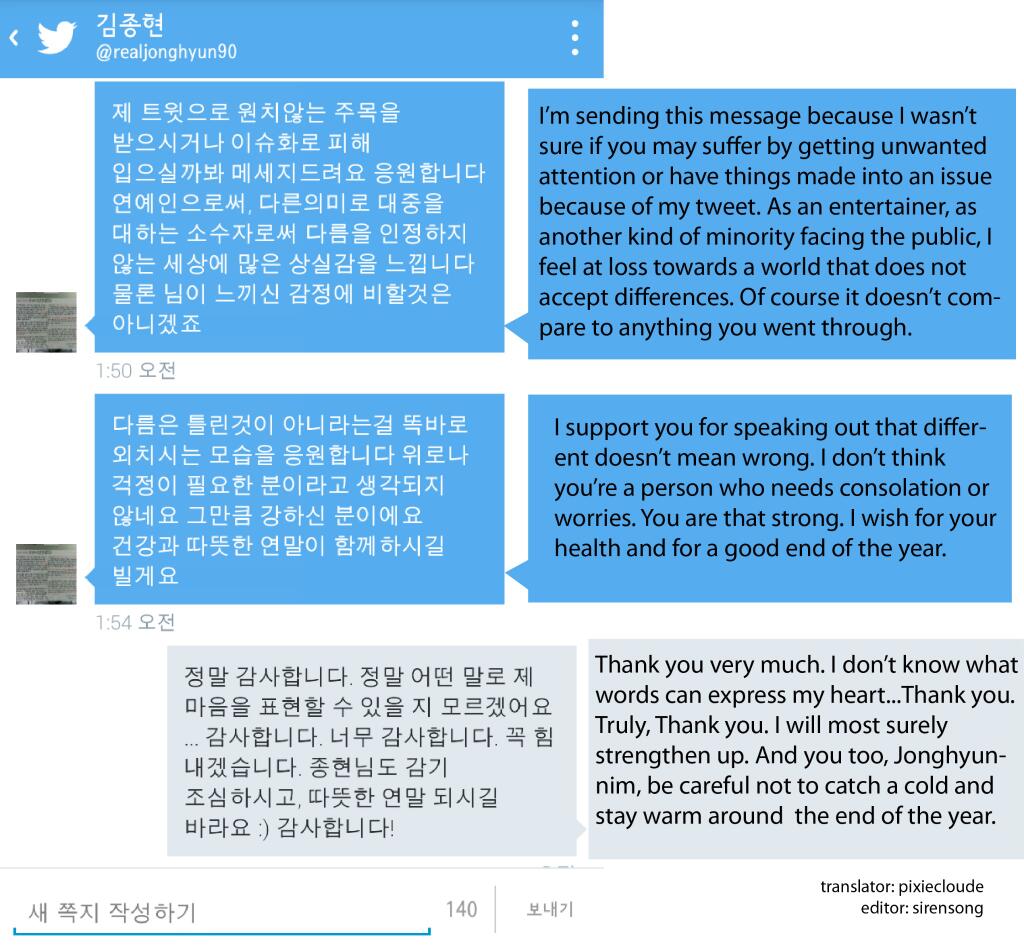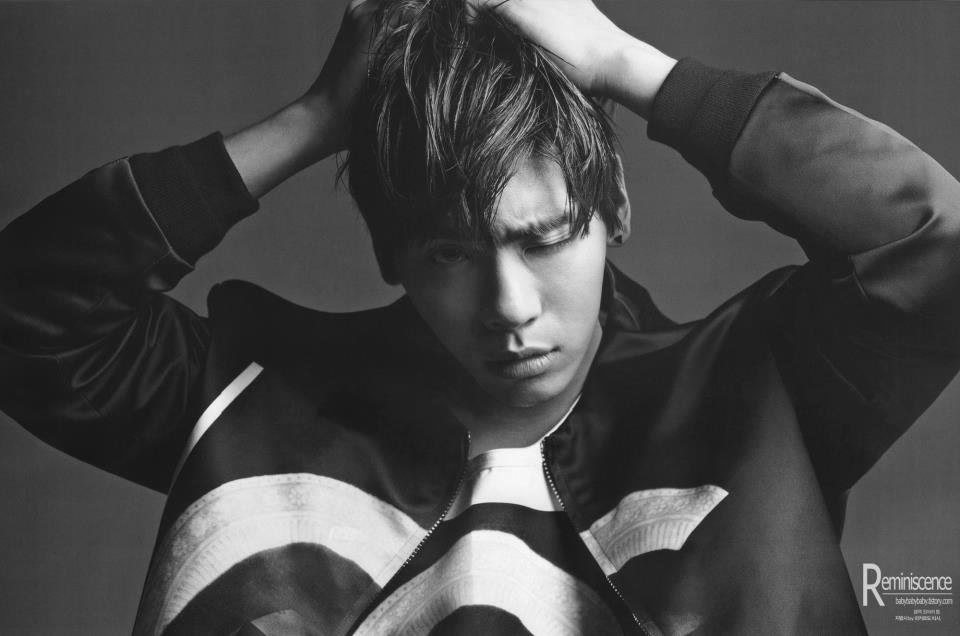 Shinee member Jonghyun has recently caused quite a stir with his twitter message and postings. He posted a picture of a message written by a transgendered, bisexual student from Sungkonghoe University that brought into question the current treatment of sexual minorities in Korean. It is in part with the “녕들하십니까? Hello?/Are you okay?” movement which tries to bring many of Korea’s social inequalities to the surface. This message was geared more towards the LGBT community as it pulled in the recent ceremony of Kim Jo-kwang-soo and Kim Seung-hwan and the treatment they received from their same sex wedding ceremony.
Shinee member Jonghyun has recently caused quite a stir with his twitter message and postings. He posted a picture of a message written by a transgendered, bisexual student from Sungkonghoe University that brought into question the current treatment of sexual minorities in Korean. It is in part with the “녕들하십니까? Hello?/Are you okay?” movement which tries to bring many of Korea’s social inequalities to the surface. This message was geared more towards the LGBT community as it pulled in the recent ceremony of Kim Jo-kwang-soo and Kim Seung-hwan and the treatment they received from their same sex wedding ceremony.
The message was made Jonghyun’s profile picture, and also prompted a response from the idol about the issues. He reached out to the student, which part of his message thanking her for speaking out that “different doesn’t mean wrong” and also to give her a bit of support, as his twitter post has surely given the student a lot more attention, both good and bad.
 As of now, the international community seems to be quite happy with Jonghyun’s involvement and his promotion of the issue.
As of now, the international community seems to be quite happy with Jonghyun’s involvement and his promotion of the issue.
Many K-pop fans don’t get much cultural news when it comes to idols, so it was a refreshing change to see an idol promote an issue from a more personal stand point. However, since this news story is rather new, the backlash that both the student and the idol could receive had yet to surface. A more in depth article will be made on the issue.
Below is the full translation of the poster:
Last April, the third attempt to enact anti-discrimination legislation was turned down because of those who loathe equality. In September, Kim Jo-kwang-soo and Kim Seung-hwan publically held a same sex wedding for the first time in Korea. There were disturbances such as human excrement being thrown onto the stage, but Kim Jo-kwang-soo and Kim Seung-hwan marched down the aisle with pride as to prove that “love is stronger than hate.” But a few days ago, their marriage registration was denied. Also, some people voiced ridiculous claims that textbooks should discuss the issue of the humans rights of sexual minorities as a topic you agree or disagree with.
Many of you who read this will think like this: how on earth does this concern me or the state of current affairs? But because I know him [Kim Jo-kwang-su], I can tell you this. Whether you are pleased with this or not, this is the story of the world that sexual minorities, including myself, live through, who dine, take classes, study, and have debates with with all of you. This is another side of the current affairs of the society we live in.
Yes, I am a sexual minority. I am a male to female transgender person and I am bisexual. I am a woman. I am of the “880,000 Won” generation. I am a college student. I am one of the inheritors of the working class. What more names can you call me by? There will be no end if you tried to enumerate them one by one. It’s not just me, but probably all of you are living in the present, being called by numerous names.
But I am not okay, not at peace at any moment, whichever name I am being called. Today’s Korean society not only can’t enact an anti-discrimination law, but discriminates against sexual minorities on a daily basis, throws rampant unfair criticism and hatred towards females, exploits the young generation, forces college students to be absorbed with employment instead of academics. Which name should I be called in order to be at ease?
Someone asked us this. Are you guys Annyeong, whether we are doing well. That’s what I’m saying. Are we all well when we’re relieved that another’s pain is “not mine,” growing accustomed to closing our eyes and blocking our ears in order to protect our own lives? How well can we be in a cold-hearted world when it continuously presses us to give up empathy?
I’m not saying that we all should pour out on the streets and start throwing stones. It’s just that, if this story of asking whether all of us living today are Annyeong (doing well) provides an opportunity to look into the face of the person next to you and call their name, I think this has been worthwhile. As the world becomes lonelier, I think, contrary to our belief, the way for us to become ‘well’ is nearby. Right now, please ask the person next to you, “Are you well?”
From snowy Sungkonghoe University,
Kim Eun-ha, Department of Social Science
(Translations via TwitLonger; image via Twitter)


